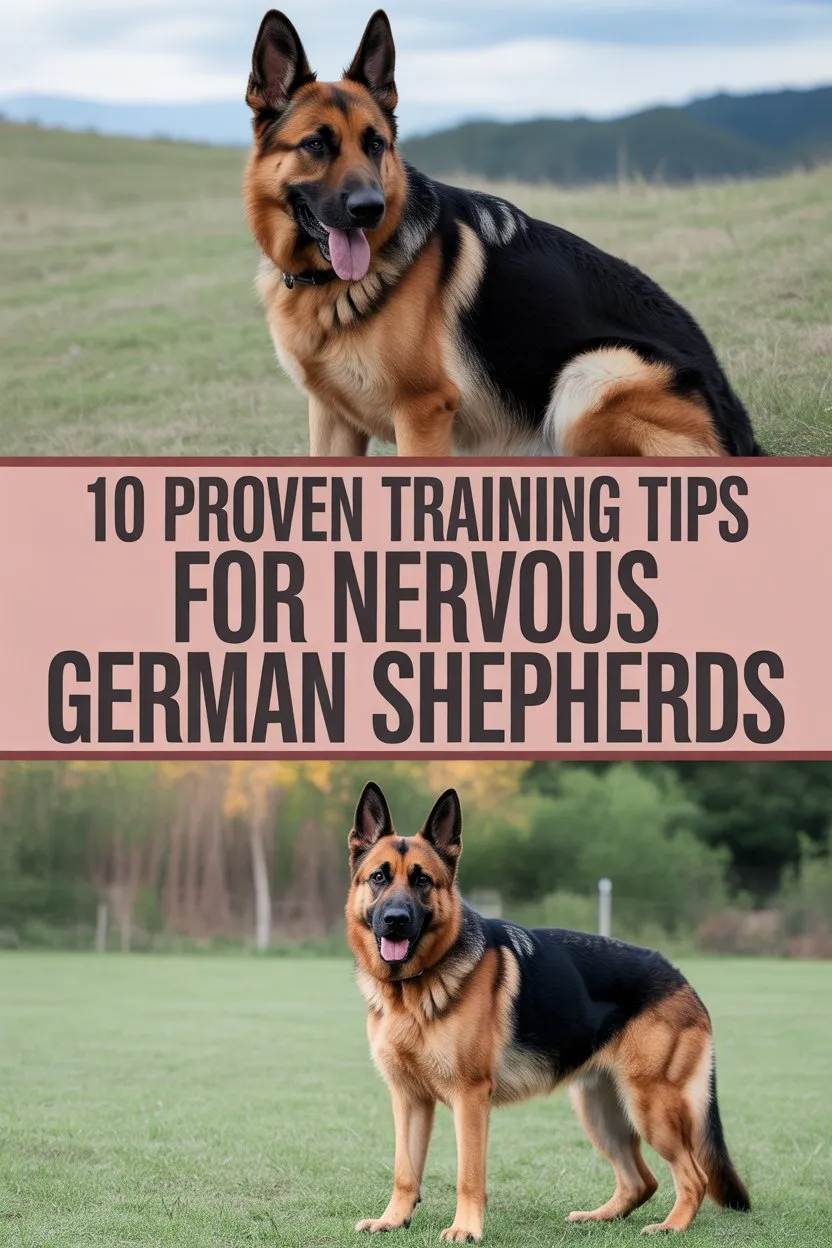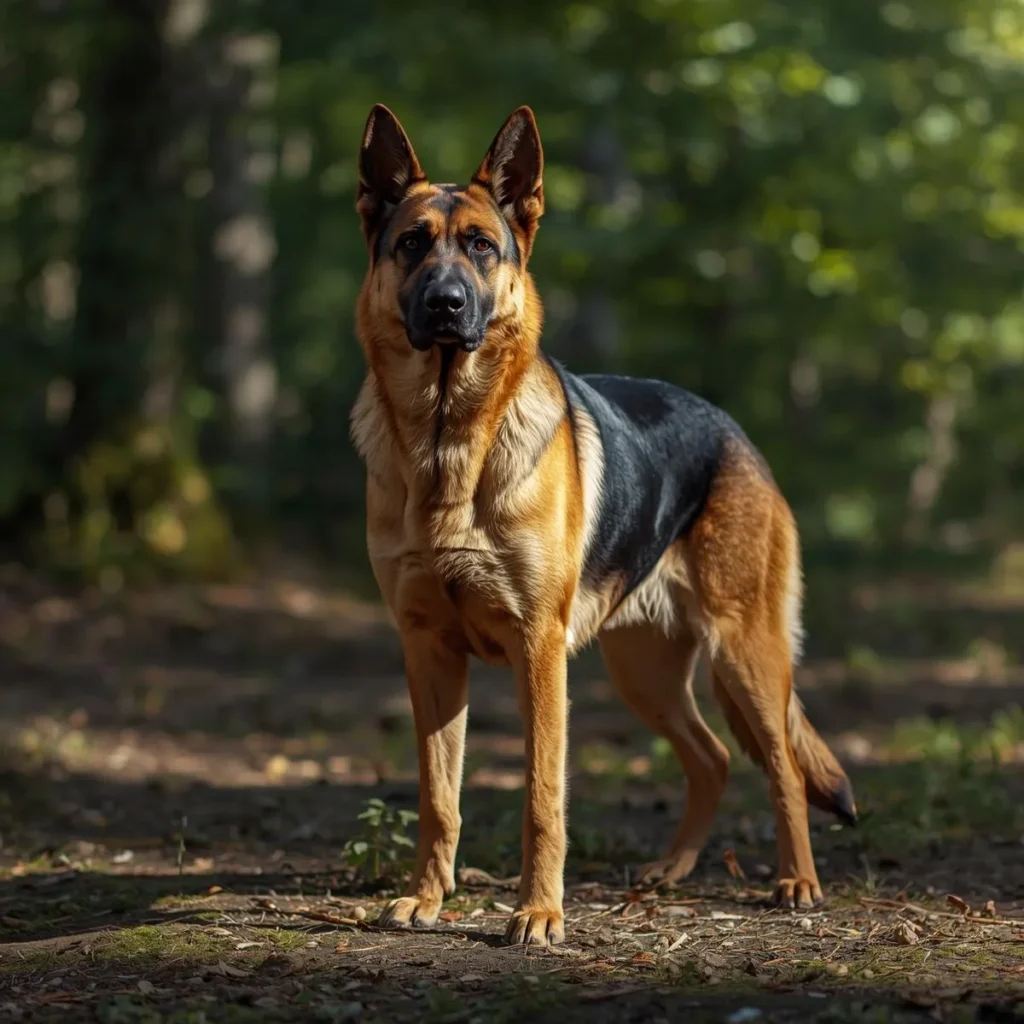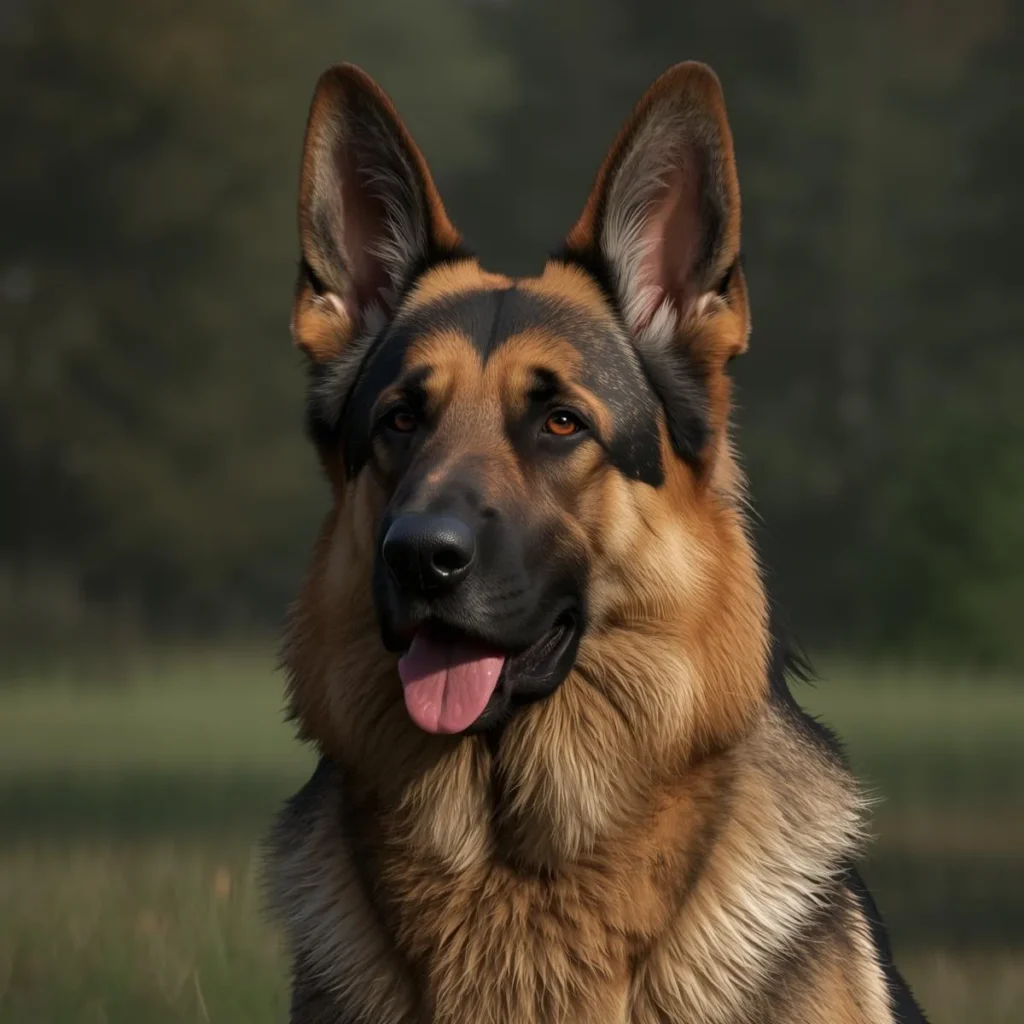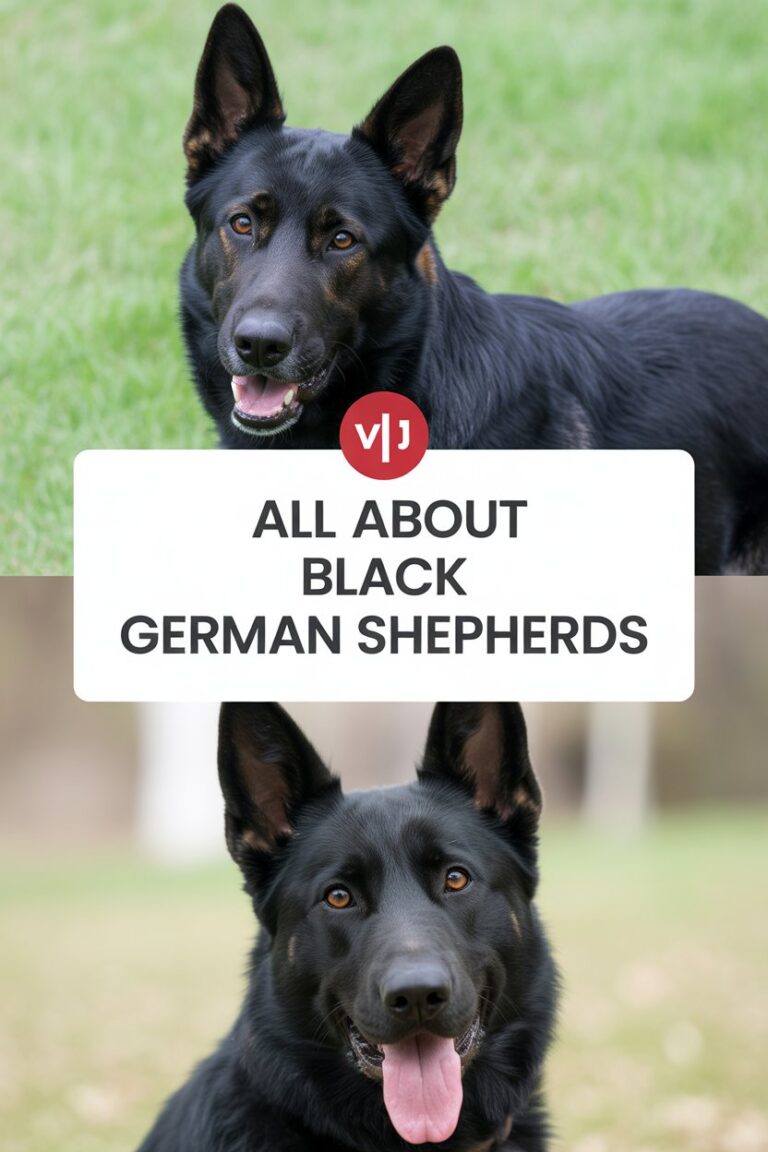10 Proven Training Tips for Nervous German Shepherds

German Shepherds are known for being loyal, intelligent, and protective, but like all dogs, they can have their moments of anxiety or nervousness. If you have a nervous German Shepherd, you might be facing challenges with training, behavior issues, or even fear-based reactions. But don’t worry! With patience, consistency, and positive reinforcement, you can help your nervous dog feel more confident and secure.
In this article, we’ll discuss 10 proven training tips for nervous German Shepherds, which will help build trust, reduce anxiety, and improve their behavior over time.

Establish a Calm and Consistent Routine
One of the best ways to reduce your German Shepherd’s nervousness is by establishing a consistent routine. Dogs, especially those prone to anxiety, thrive on structure and predictability.
Why It’s Important: Consistent schedules help your dog know what to expect, which reduces stress and builds a sense of security.
Tip: Set regular times for meals, walks, playtime, and training sessions. Stick to a predictable routine so your dog can feel more comfortable knowing what comes next.
Positive Reinforcement Training
When training a nervous German Shepherd, it’s crucial to use positive reinforcement—rewarding good behavior rather than punishing undesirable behavior. Positive reinforcement helps build your dog’s confidence and strengthens your bond.
Why It’s Important: Nervous dogs can be more sensitive to punishment, which can escalate anxiety or fear. Positive reinforcement creates a safe, encouraging environment for learning.
Tip: Use treats, praise, and playtime as rewards when your dog follows commands. Be sure to reward small successes consistently to build confidence and reinforce good behavior.
Socialization Is Key
Socialization is vital for any dog, but especially for nervous breeds like the German Shepherd. Early and controlled exposure to various people, dogs, and environments helps reduce fear and anxiety in new situations.
Why It’s Important: A well-socialized dog is more likely to remain calm and confident when faced with unfamiliar stimuli. This also prevents the development of fear-based aggression or reactivity.
Tip: Start socializing your German Shepherd at an early age by introducing them to new experiences gradually. If you have an older dog, take it slow and use positive reinforcement to help them feel comfortable in new environments.
Create a Safe Space for Your Dog
Nervous dogs often need a quiet, safe retreat where they can relax and feel secure. This could be a crate, a specific room, or a cozy spot in your home.
Why It’s Important: A safe space helps your dog decompress and escape overwhelming stimuli. It’s a place where they can retreat when feeling anxious.
Tip: Make sure your dog’s safe space is comfortable, quiet, and free from distractions. Encourage them to spend time there when they’re feeling nervous, and make it a positive environment with treats and toys.

Gradual Desensitization to Triggers
If your German Shepherd is nervous about specific triggers, such as loud noises, strangers, or certain environments, gradual desensitization is an effective method. This involves slowly exposing your dog to the source of their anxiety in a controlled way.
Why It’s Important: Gradual desensitization helps your dog build tolerance to stress-inducing situations and reduces their fear response over time.
Tip: Start by exposing your dog to their triggers from a distance or at a low intensity, then gradually increase the exposure. Pair each exposure with positive reinforcement to create positive associations.
Use Calming Products
For some nervous German Shepherds, calming products like pheromone diffusers, calming collars, or anxiety wraps can help soothe their nerves during training and stressful situations.
Why It’s Important: These products can provide immediate relief for anxiety, allowing your dog to focus better during training and making the learning process easier.
Tip: Consider using a calming pheromone diffuser like Adaptil or a snug anxiety wrap like Thundershirt to help your dog feel more relaxed during training sessions or when faced with stressful situations.
Start Training in a Low-Stress Environment
When training a nervous dog, it’s essential to start in a low-stress environment where your dog feels comfortable and safe. Overwhelming them with distractions can heighten their anxiety and make training less effective.
Why It’s Important: A calm environment helps your dog stay focused and relaxed during training, which is especially important for nervous dogs who might get easily overwhelmed.
Tip: Begin training sessions in a quiet room with minimal distractions. Gradually introduce more stimuli as your dog becomes more confident and accustomed to the training process.
Use Gentle, Calm Body Language
Dogs are highly attuned to body language and tone of voice, so when working with a nervous German Shepherd, it’s important to use gentle, calm movements and soothing tones.
Why It’s Important: Nervous dogs may pick up on your energy and become even more anxious. By remaining calm and using a gentle demeanor, you help reassure your dog.
Tip: Speak to your dog in a soft, calm voice, and avoid making sudden movements that could startle them. Your body language should convey a sense of calm and reassurance.
Avoid Overwhelming Your Dog
While it’s important to train your dog consistently, it’s also essential not to overwhelm them with too many commands or long training sessions. Nervous dogs can become stressed if pushed too hard, which can hinder progress.
Why It’s Important: Short and positive training sessions are more effective for nervous dogs. They’re less likely to become anxious or frustrated, which leads to better results.
Tip: Keep training sessions short—10-15 minutes at a time— and always end on a positive note. This prevents your dog from becoming overwhelmed and helps them retain what they’ve learned.

Be Patient and Consistent
Training a nervous German Shepherd requires patience and consistency. This breed is intelligent, but they may take longer to build confidence and trust. Remember, progress can take time, so be kind to both yourself and your dog during the training process.
Why It’s Important: Nervous dogs need time to adjust to new situations and training methods. With patience, they will begin to build the confidence necessary to become calm and well-behaved.
Tip: Stay consistent with your training techniques, rewards, and routines. With time and patience, your German Shepherd will begin to show improvement in their behavior.
Why These Training Tips Work
These 10 proven training tips for nervous German Shepherds are designed to help you build a trusting relationship with your dog while reducing their anxiety. By using positive reinforcement, creating a calm environment, and gradually desensitizing them to triggers, you can help your German Shepherd become more confident and well-adjusted.






